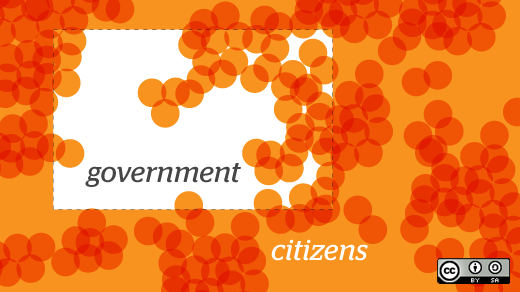Some open source texts need to be as accessible, powerful, efficient, and fault-free as a GNU/Linux server.
Traditional closed source businesses are already bringing software design concepts, such as agile management, into their business models. In the open source world, from political parties that advocate for government reforms, to nonprofit organizations serving open source content, to businesses that make open source software, the open source movement is both equipped for and in need of leap-frogging closed source business practices by open sourcing governing structures, whether it is the governing structure of an organization or the way we run democracy itself.
The principles that drive the open source movement are principles that concern everything from the right to share, to a coherent view on privacy; from the right of access to explore and modify work under the hood, to a belief in the power of openness and collaboration; and principles such as a belief in commons, in altruism, and in free access to education and information. These principles could and must spread to business, to banking, to schooling, to medicine, to sports, to entertainment, to news media, to government, in short to every facet of our lives.
If we want to harness the power of open source in these very different and distinct facets of our lives, then what better way than to build a platform that facilitates both small- and large-scale collaboration and can handle things like revision control and project management for the authoring of documents, such as policy statements, constitutions, and bills of law. Here are five things that such an authoring platform could address:
Workflow management
From the conception of an idea that might only be shared with a few individuals, to a draft paper that might be submitted to an entire organization for consideration, to the public launch of an official organizational statement. Although many organizations will prefer at least part of that process to remain private, the benefits of a framework for open collaboration are also clear.
A system for managing proposals, such as the Debian Enhancement Proposals platform in which ideas are assigned states based on where they are in the process [draft, candidate, accepted, rejected], together with a transparent system for collective decision making would empower the authors to work better collaboratively.
Access rights, versioning, and revision control
Being in control of what we share and with whom is desirable, with openness and transparency encouraged where possible. The creators of a document should be able to decide which groups of people should be able to see, propose changes, or edit the object.
If we break a document down into its constituent blocks and the revisions into the features that they add or fix, then the process of collaboratively authoring a document is likely to go through a vast number of versions in a non-linear way. Experience from software development could take the pain out of naming different versions and identifying revisions that are compatible by automating these processes.
Scalable formal structures and open standards
The Markdown syntax is simple enough to learn quickly, but powerful and scalable enough to be used to render a webpage or the text of the Universal Declaration of Human Rights pretty and readable. Open standards have already proven their worth when they have superseded and replaced proprietary standards. Using open standards together with such simple and scalable structures will make this authoring platform powerful and versatile.
Facilitation of collaboration
Whether decisions are made by consensus or vote, or by majority or a wise minority, it is important that the balance of power is part of a framework agreed by all the people who want to participate in it. In some circumstances, giving everyone an equal voice or at least all members of the organization might be desirable. In other situations, such as when certain individuals have special expertise or there is a danger that a group will be flooded with new members with an agenda, giving some individuals more authority than others might be a better solution.
How individuals earn authority in that case is down to the group to decide. For example, authority might be earned through the length of time they have been a member or as a result of appraisals from other members. Or perhaps individuals could have more authority over different aspects of the document. In many cases, the framework by which collaboration is achieved can be formalized and handled by software.
Ease of access and fun to use
To give this authoring platform the power it desires, we need to open up its potential user base to as large a number of individuals as possible. If the platform is to give a voice to the voiceless it needs to be accessible to all.
If you want to help make such an open collaborative authoring platform become a reality, drop me a line in the comments below.







Comments are closed.